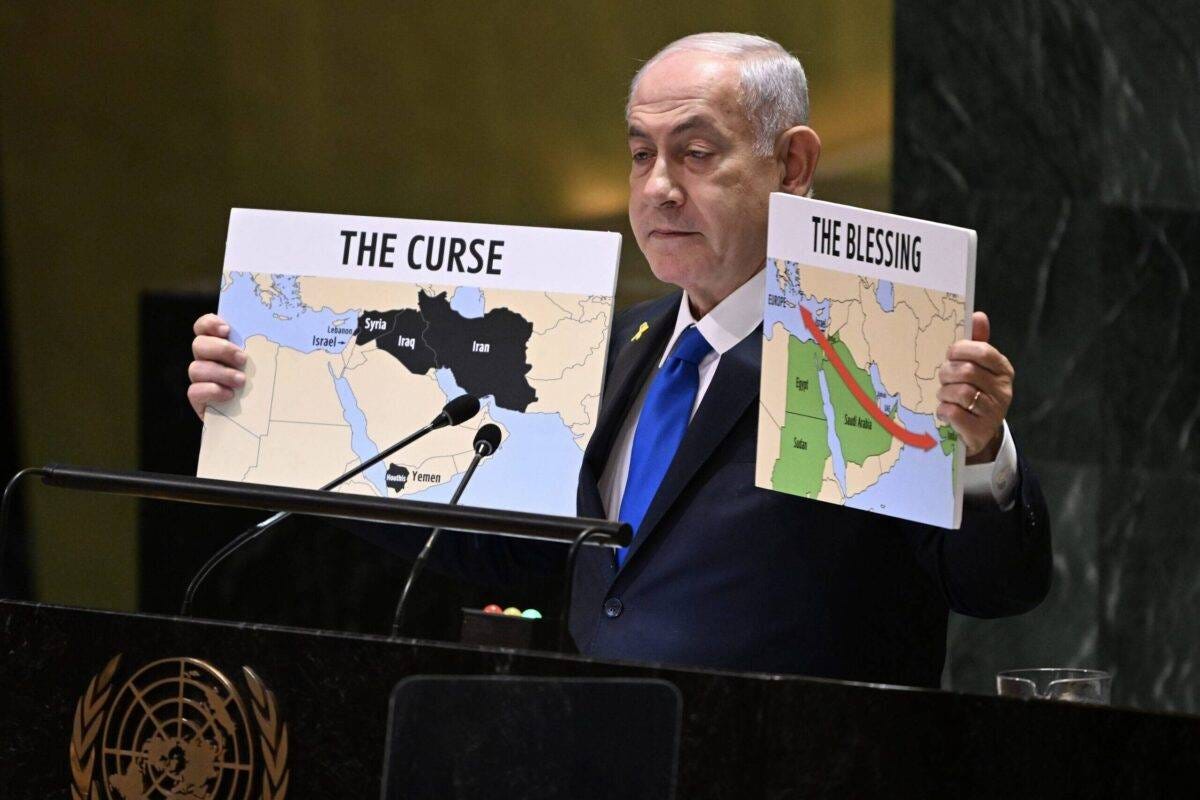Netanyahu’s Rhetoric and Israel’s Actions Leave the Country Isolated
The ongoing Genocide in Gaza has left Israel with very few friends, those who are left are being pushed away by Netanyahu's tantrums.
For decades, Israel has managed to maintain a delicate balance: alienating critics while keeping powerful allies close enough to shield it from accountability. That balance is now breaking down.
Prime Minister Benjamin Netanyahu’s belligerent outbursts against traditional allies, paired with Israel’s escalating policies of occupation, bombardment, and Genocide, are pushing the country into an isolation it has long feared but always managed to avoid.
The clearest recent example came with Australia. After Canberra announced its intent to recognize a Palestinian state, Netanyahu lashed out personally at Prime Minister Anthony Albanese, calling him weak and accusing him of betraying Jews. Israel then escalated the row by revoking visas of Australian diplomats in retaliation for Australia’s earlier cancellation of far-right Israeli MK Simcha Rothman’s entry permit. Rather than papering over the dispute, Netanyahu inflamed it, turning a policy disagreement into a personal feud that revealed just how strained Israel’s ties with democratic allies have become.
Similar tensions are emerging elsewhere. Germany has suspended military exports to Israel. Norway’s sovereign wealth fund has divested from Israeli holdings. The United Kingdom, France, and Canada are preparing to join Australia in recognizing Palestinian statehood. What once seemed unthinkable, a steady Western drift away from Israel, is quickly becoming reality. Netanyahu’s rhetoric makes headlines, but the driver is Israel’s actions on the ground.
Israel’s AI Systems Have Designed an Industrial-Scale Killing Machine
Israel’s war on Gaza has revealed a chilling evolution in the use of artificial intelligence in warfare. Behind the devastation lies a network of military algorithms, chief among them ‘Lavender’ and ‘Gospel’, developed by Israel’s elite cyber-intelligence arm, Unit 8200. These systems, known as a are invisible, fast, and built for mass-scale targeting.
In France, the breakdown has been particularly sharp. President Emmanuel Macron condemned Israel’s escalation in Gaza and called for an immediate ceasefire, prompting Netanyahu to accuse Paris of “rewarding terror.” French officials responded by warning that Netanyahu’s comments were undermining bilateral relations and isolating Israel even further. The spat marked a dramatic shift from France’s historical posture as both a critic and occasional supporter of Israel, underscoring how little room remains for patience with Netanyahu’s government.
Israel’s continued assault on Gaza has deepened its pariah status. The planned expulsion of Palestinians to South Sudan, and a military occupation of Gaza City, pushed by Netanyahu, sparked pushback not only from foreign capitals but from Israel’s own military leadership, who fear catastrophic losses and risks to hostages. Meanwhile, civilian death tolls, starvation conditions, and evidence of war crimes have further alienated Israel abroad. Protests have erupted across Europe and North America, with dockworkers, students, and trade unions increasingly refusing to cooperate with Israeli-linked projects.
Israel Wants to Forcibly Move Palestinians to South Sudan
Israel is reportedly in talks with South Sudan to take in Palestinians from Gaza, a move that human rights experts say would violate international law and amount to ethnic cleansing. The discussions, according to multiple reports, are at an early stage but have already sparked outrage from Palestinians, regional governments, and humanitarian organizatio…
The combination of occupation plans, retaliatory visa bans, and indiscriminate military campaigns has placed Israel beyond the reach of polite diplomatic disagreement. These are deliberate policies enacted by the state itself, backed by its institutions. That is what is truly driving isolation.
Inside Israel, protests grow louder. Families of hostages accuse Netanyahu of prioritizing his political survival over their loved ones’ lives. Hundreds of thousands take to the streets weekly, demanding a ceasefire and hostage deal. Former Prime Minister Ehud Olmert warned that Israel is on a path to becoming a pariah, not because of external enemies but because of its own government’s choices.
The military itself has resisted some of Netanyahu’s more extreme proposals. Senior commanders worry about the risks of a full Gaza occupation, not only to soldiers but to Israel’s already battered global standing. That friction underscores a broader crisis: a leader out of step not only with allies but with parts of his own state apparatus.
The situation increasingly mirrors apartheid South Africa in its final years. Pretoria relied on Western allies for trade and weapons, but escalating repression at home eventually made support politically untenable. Leaders who once provided cover began to distance themselves, not out of sudden morality but because backing apartheid had become toxic. The same dynamic is now visible with Israel. As the scale of violence in Gaza grows, allies cannot justify support without alienating their own citizens.
Other parallels emerge with Franco’s Spain, which clung to alliances through intimidation but found itself marginalized in Europe after World War II. In each case, the strategy of bullying allies failed once the state’s actions made cooperation impossible.
Netanyahu is weaponizing Israel’s isolation for political survival. By painting foreign governments as weak or disloyal, he rallies his base around a siege mentality: Israel against the world. But the costs of this strategy are profound. Isolation may help Netanyahu cling to office, but it leaves Israel weaker abroad, more divided at home, and increasingly compared to regimes that ended in disgrace.
Netanyahu’s rhetoric accelerates the process, but Israel’s actions, the wars of occupation, the attacks on civilians, the diplomatic retaliations, are what truly isolate the country. For years, Israel relied on its allies to shield it from consequences. Now, those shields are breaking. The more it bombs Gaza, the more it retaliates against critics, and the more Netanyahu lashes out, the fewer allies remain. Israel is not simply losing friends, it is dismantling its own defenses.






